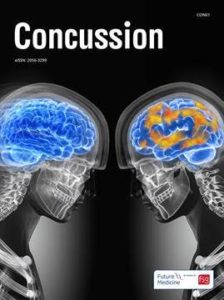Background: Vision encompasses a large component of the brain’s pathways yet is not represented in current sideline testing.
Objectives: We performed a meta-analysis of published data for a vision-based test of rapid number naming (King-Devick [K-D] test).
Studies & methods: Pooled and meta-analysis of 15 studies estimated preseason baseline K-D scores and sensitivity/specificity for identifying concussed versus non-concussed control athletes.
Result: Baseline K-D (n = 1419) showed a weighted estimate of 43.8 s (95% CI: 40.2, 47.5; I2 = 0.0%; p = 0.85 – indicating very little heterogeneity). Sensitivity was 86% (96/112 concussed athletes had K-D worsening; 95% CI: 78%, 92%); specificity was 90% (181/202 controls had no worsening; 95% CI: 85%, 93%).
Conclusion: Rapid number naming adds to sideline assessment and contributes a critical dimension of vision to sports-related concussion testing.
Summary Points:
- There is a concussion epidemic among athletes, and this extends to military personnel and other population groups.
- Given the widespread distribution of the visual pathways throughout the brain, a sideline test incorporating vision may aid in the diagnosis of concussion.
- The King-Devick (K-D) test, a rapid vision-based performance measure of rapid number naming, has been examined in a range of athletes at different ages and may be useful in the identification of concussion.
- Any worsening of baseline K-D test time at the time of an injury indicates a 5x greater risk of concussion.
- The K-D test was found to be reliable when administered by both trained personnel and laypersons.
- The K-D test was found to be both sensitive (86%) and specific (90%) for the detection of concussion.
- The use of K-D along with the SAC and BESS has been shown to detect 100% of clinically diagnosed concussions in this meta-analysis.
- The addition of a vision-specific concussion test to currently recommended concussion screening tools may expand the ability to detect concussion.
- Baseline K-D times have been shown to be improved (decrease) with increasing age among youth athletes.
- Baseline K-D tests should be performed at least seasonally.
- Noise has not been shown to significantly impact K-D times.
- Fatigue or competition alone does not to impact K-D times; in fact, time scores often improve after vigorous exercise.
- The K-D test is a rapid, reliable, sensitive and specific test for concussion. Any worsening in time from a baseline K-D score is indicative of a concussion. The K-D test has the potential to screen for unwitnessed, or sub-concussive neurologic impairment as the result of injury from impulsive forces.

